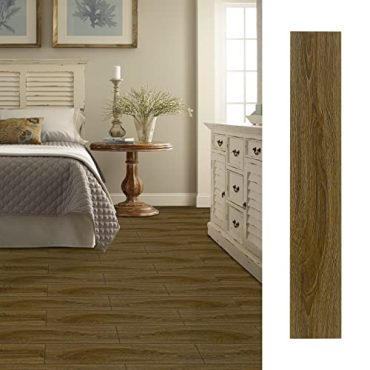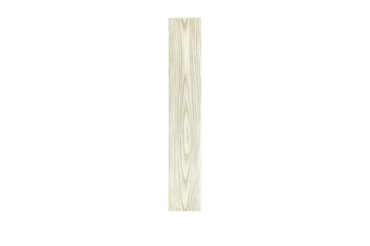Vinyl flooring and traditional flooring options each have their own set of advantages and disadvantages. Your choice will depend on your specific needs, preferences, and the characteristics of the space you’re looking to floor. Let’s compare vinyl flooring with some traditional options like hardwood, ceramic tile, and carpet:
1. Vinyl Flooring vs Hardwood:
- Aesthetics: Hardwood offers a classic and natural look, while vinyl can closely mimic hardwood’s appearance with added durability.
- Durability: Vinyl is more resistant to scratches, moisture, and wear, making it suitable for high-traffic areas. Hardwood can scratch and dent more easily.
- Maintenance: Vinyl requires less maintenance and can be more resistant to spills. Hardwood may need refinishing over time.
- Comfort: Vinyl has a softer feel underfoot, providing more comfort compared to the harder surface of hardwood.
- Installation: Vinyl is often easier and quicker to install, while hardwood installation can be more complex and time-consuming.
- Cost: Vinyl is generally more budget-friendly than hardwood, which can be expensive due to material and installation costs.
2. Vinyl Flooring vs Ceramic Tile:
- Aesthetics: Ceramic tiles offer a wide range of design options, but vinyl can replicate the look of tile with added warmth and comfort.
- Durability: Both materials are durable, but ceramic tiles can crack under heavy impact, while vinyl tiles are more resilient.
- Installation: Ceramic tile installation can be labor-intensive and time-consuming, while vinyl tile installation is generally quicker and easier.
- Maintenance: Vinyl requires less maintenance and is more forgiving in terms of potential damage.
- Comfort: Vinyl provides a softer surface and better insulation against cold, while ceramic tiles can be cold and hard underfoot.
- Cost: Ceramic tiles can be more expensive to purchase and install compared to vinyl tiles.
3. Vinyl Flooring vs Carpet:
- Aesthetics: Carpet offers warmth and softness, while vinyl replicates the look of various materials with added durability.
- Durability: Vinyl is more resistant to stains, spills, and wear, while carpet can be susceptible to staining and may need replacement sooner.
- Maintenance: Vinyl is easier to clean and more resistant to spills and stains. Carpet requires regular vacuuming and occasional professional cleaning.
- Comfort: Carpet provides a soft and comfortable surface to walk on, while vinyl is more rigid but offers more resistance to allergens.
- Installation: Vinyl installation is generally quicker and simpler than carpet installation, which may require padding and stretching.
- Cost: Vinyl is often more cost-effective compared to high-quality carpet options, considering both material and installation costs.
Ultimately, the choice between vinyl flooring and traditional options depends on factors like the specific room’s use, your design preferences, maintenance requirements, and your budget. Assess the pros and cons of each option in relation to your needs to make an informed decision that best suits your space and lifestyle.















